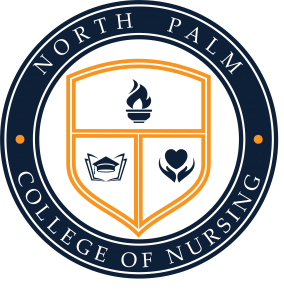The nursing profession is one of the most rewarding and fulfilling careers, providing opportunities for making a positive difference in the lives of patients and communities. However, launching a nursing career requires dedication, hard work, and a strategic approach. In this article, we’ll explore the “domino effect” of steps that nursing students can take to successfully launch their nursing career.
Step 1: Enroll In A Reputable Nursing Program
The first domino in launching a nursing career is enrolling in a reputable nursing program. Nursing programs provide students with the knowledge and skills necessary to pass licensure exams and succeed as a nurse. Therefore, it is important to choose a nursing program that offers a comprehensive curriculum, experienced faculty, and clinical experiences that prepare students for the real-world challenges of nursing.
When researching nursing programs, look for programs that are accredited by national nursing organizations, such as the Commission on Collegiate Nursing Education (CCNE) or the Accreditation Commission for Education in Nursing (ACEN). Accreditation ensures that nursing programs meet national standards for nursing education and have a track record of preparing students for success.
In addition to accreditation, consider other factors such as program size, location, and cost when choosing a nursing program. It is also a good idea to talk to current nursing students or alumni of the program to get their perspective on the program.
Step 2: Successfully complete nursing program requirements and obtain RN licensure
The second domino in launching a nursing career is successfully completing nursing program requirements and obtaining licensure as a registered nurse (RN). Nursing programs typically require completion of coursework, clinical rotations, and licensure exams.
The most important licensure exam for nursing students is the NCLEX-RN exam, which is required to practice nursing in the United States. The NCLEX-RN exam is a standardized test that measures the nursing student’s competency in areas such as patient care, safety, infection control, pharmacology, and healthcare systems.
To be eligible to take the NCLEX-RN exam, nursing students must first complete a nursing program that is approved by their state’s Board of Nursing. After completing the program, nursing students must submit an application to their state’s Board of Nursing and register for the NCLEX-RN exam. Once they pass the exam, they will be granted licensure as a registered nurse and can begin practicing nursing.
Step 3: Gain relevant nursing experience
The third domino in launching a nursing career is gaining relevant nursing experience through internships, externships, or entry-level nursing jobs. This experience can help nursing students develop their clinical skills, build their professional network, and increase their job prospects.
Internships and externships provide nursing students with the opportunity to work in a healthcare setting under the guidance of experienced nurses and healthcare professionals. These programs can help nursing students develop clinical skills, gain exposure to different healthcare specialties, and make valuable connections in the healthcare industry. Many nursing programs offer internships or externships as part of their curriculum.
Entry-level nursing jobs, such as nursing assistants or patient care technicians, can also provide nursing students with relevant experience. These jobs often require little to no experience and can provide nursing students with the opportunity to gain practical experience working with patients, learn from experienced nurses, and earn a salary while they gain experience.
By gaining relevant nursing experience, nursing students can develop the skills and knowledge necessary to succeed as a nurse and increase their job prospects after graduation.
Step 4: Build A Professional Network
The fourth domino in launching a nursing career is building a professional network. Networking is an essential part of any career, and nursing is no exception. By connecting with other nurses, healthcare professionals, and nursing organizations, nursing students can stay current with the latest developments
By connecting with other nurses, healthcare professionals, and nursing organizations, nursing students can stay current with the latest developments in the nursing field, learn about job opportunities, and make valuable connections that can help them advance their careers.
There are many ways to build a professional network as a nursing student. Joining nursing organizations, attending nursing conferences and events, and participating in online nursing communities can all be effective ways to connect with other nurses and healthcare professionals.
Step 5: Develop a strong resume and cover letter
The fifth domino in launching a nursing career is developing a strong resume and cover letter. A well-crafted resume and cover letter can help nursing students stand out to potential employers and increase their chances of getting a job.
A strong resume should include relevant coursework, clinical experience, and any relevant certifications or licensures. It is also important to highlight any leadership or volunteer experience, as these experiences can demonstrate a nursing student’s passion for nursing and commitment to making a positive impact in their community.
A strong cover letter should highlight the nursing student’s passion for nursing and their alignment with the organization’s mission and values. It should also provide specific examples of the nursing student’s skills and experiences that make them a good fit for the job.
Step 6: Apply to nursing jobs
The final domino in launching a nursing career is applying to nursing jobs. Nursing students can search for nursing jobs through online job boards, nursing organizations, or by reaching out to their professional network.
When applying for nursing jobs, it is important to tailor the resume and cover letter to the specific job and organization. It is also important to prepare for job interviews by researching the organization and practicing common interview questions.
In conclusion, launching a nursing career requires dedication, hard work, and a strategic approach. By following the “domino effect” of steps outlined in this article, nursing students can increase their chances of launching a successful nursing career.







